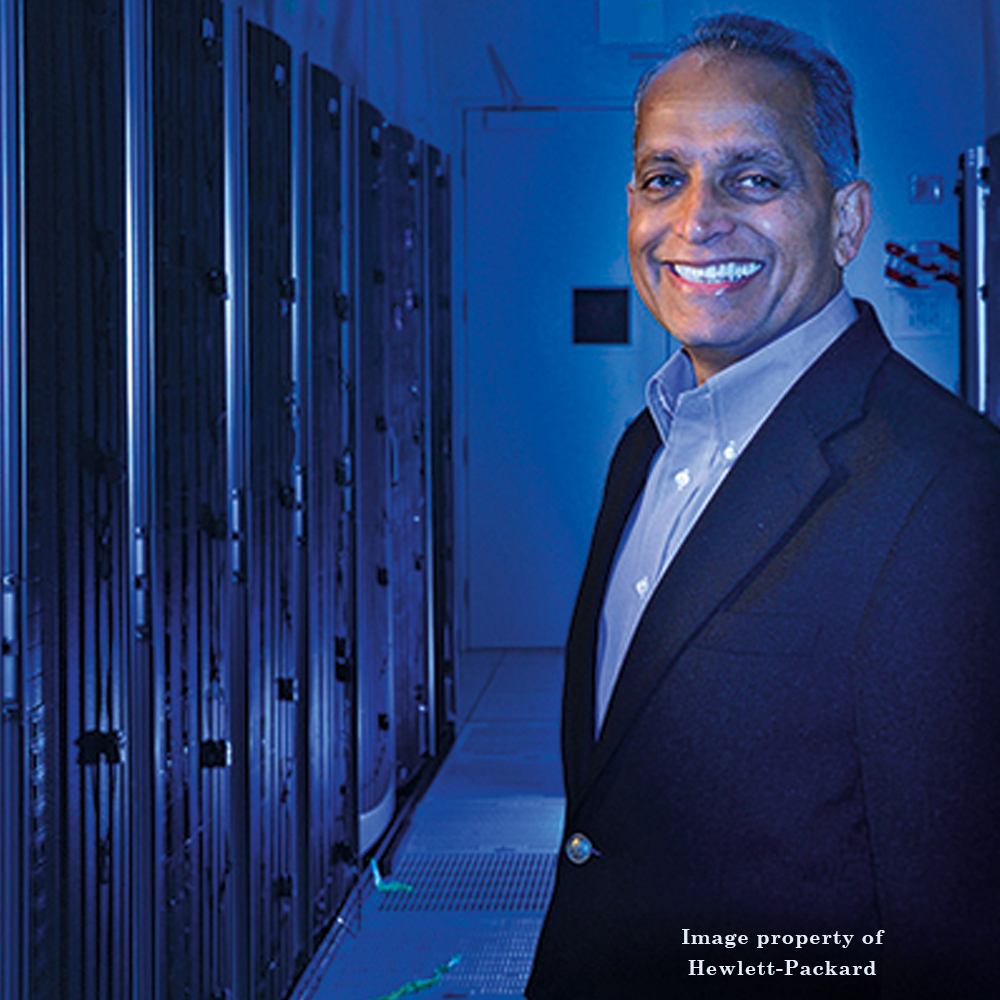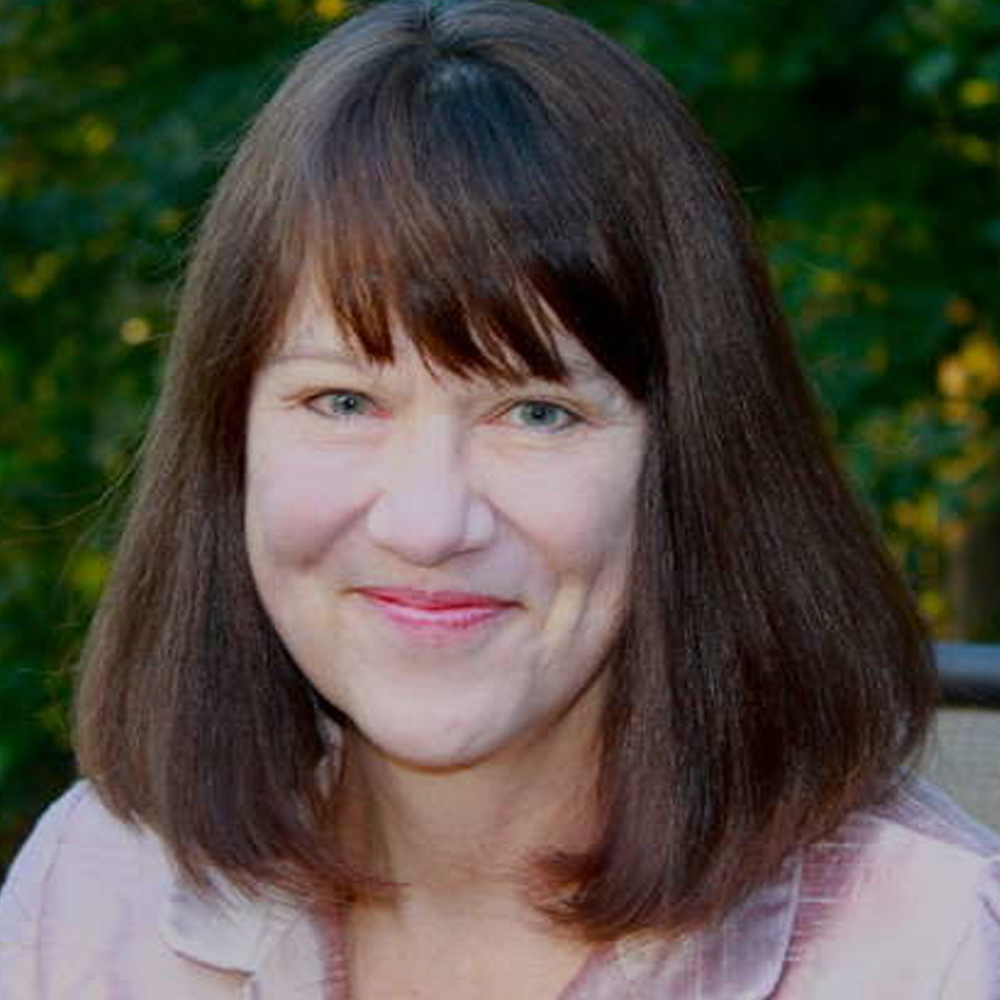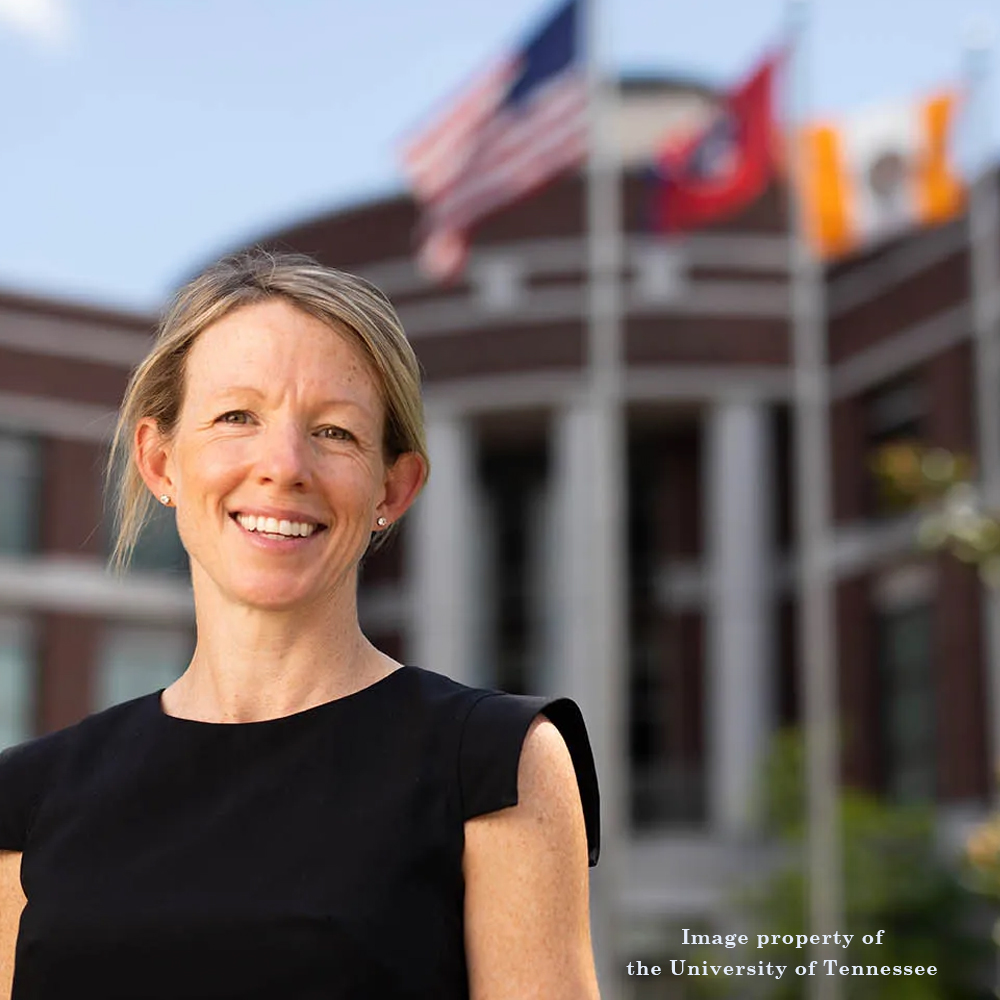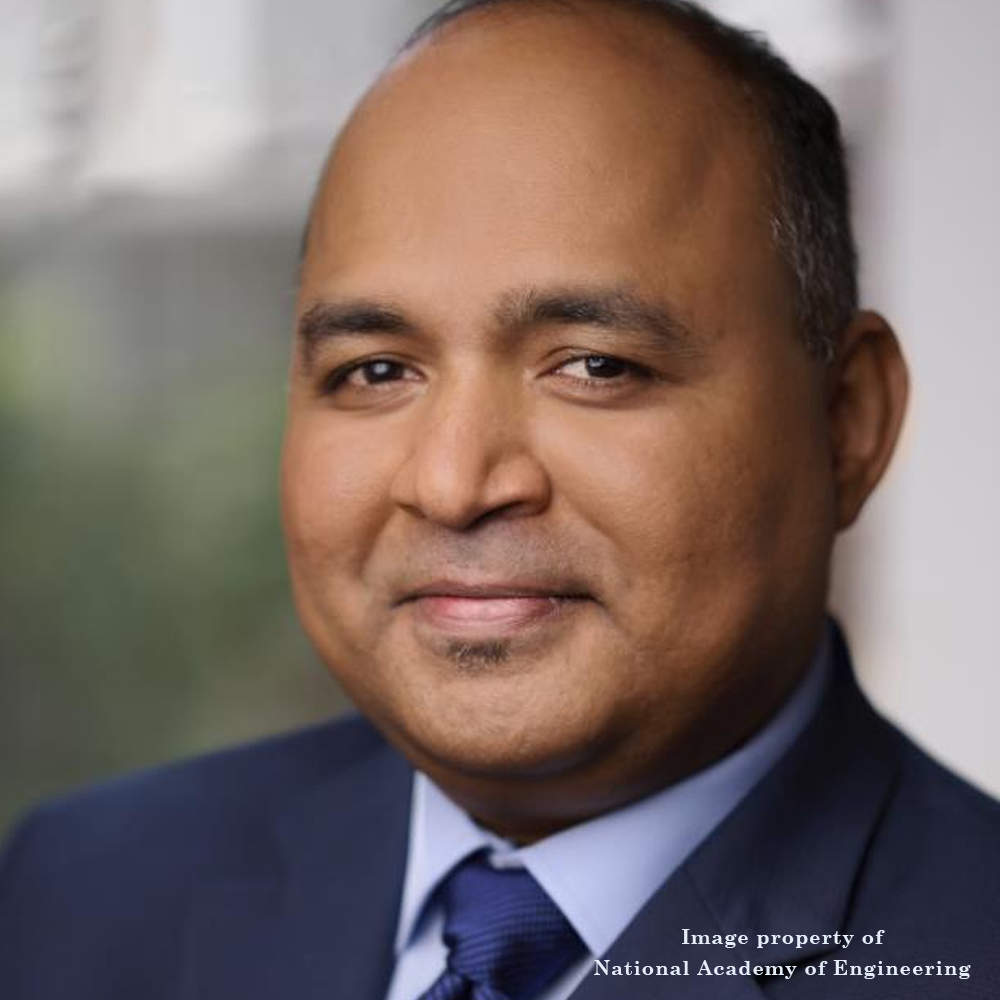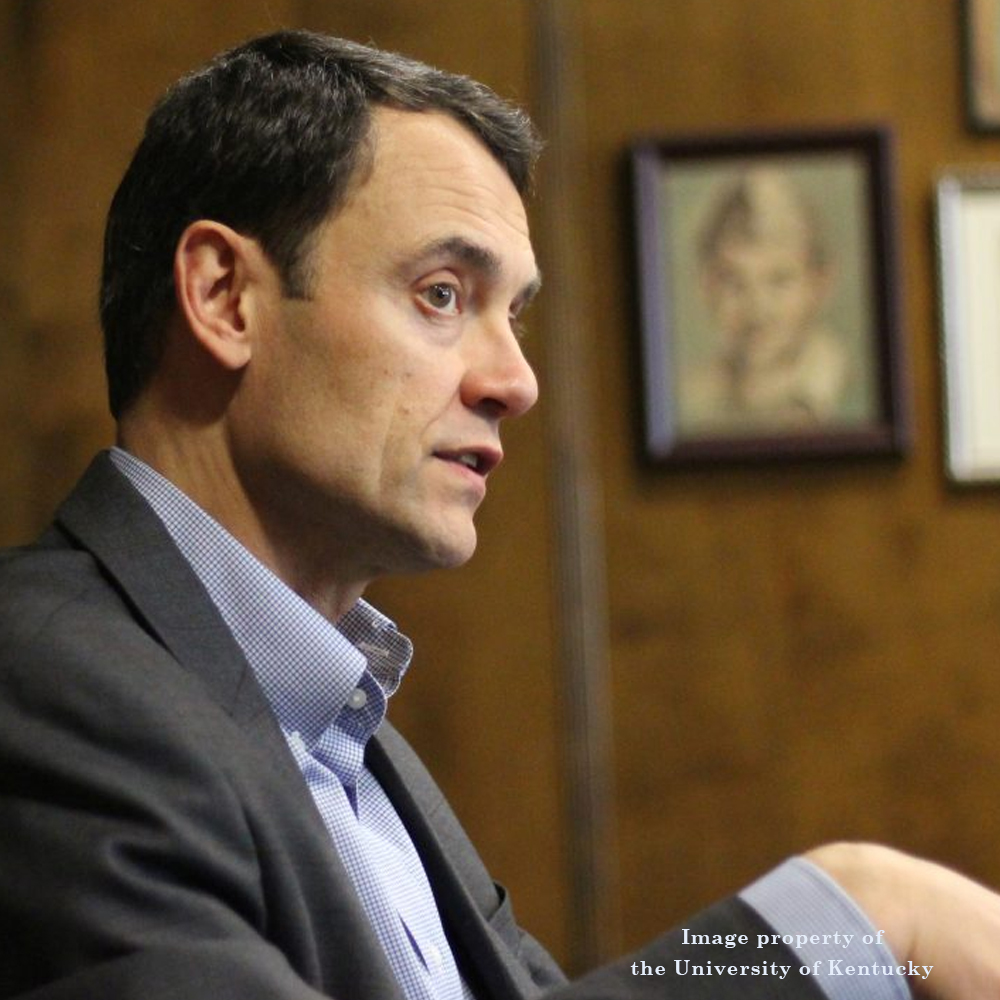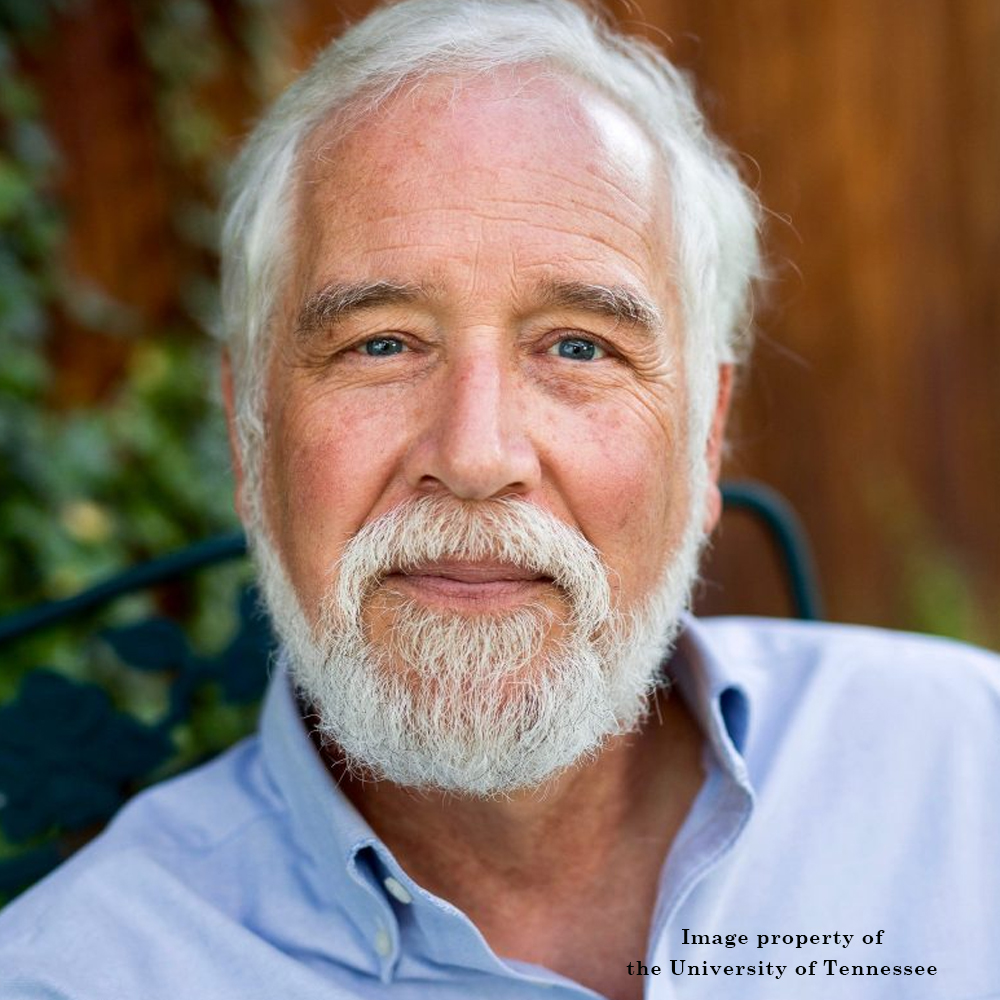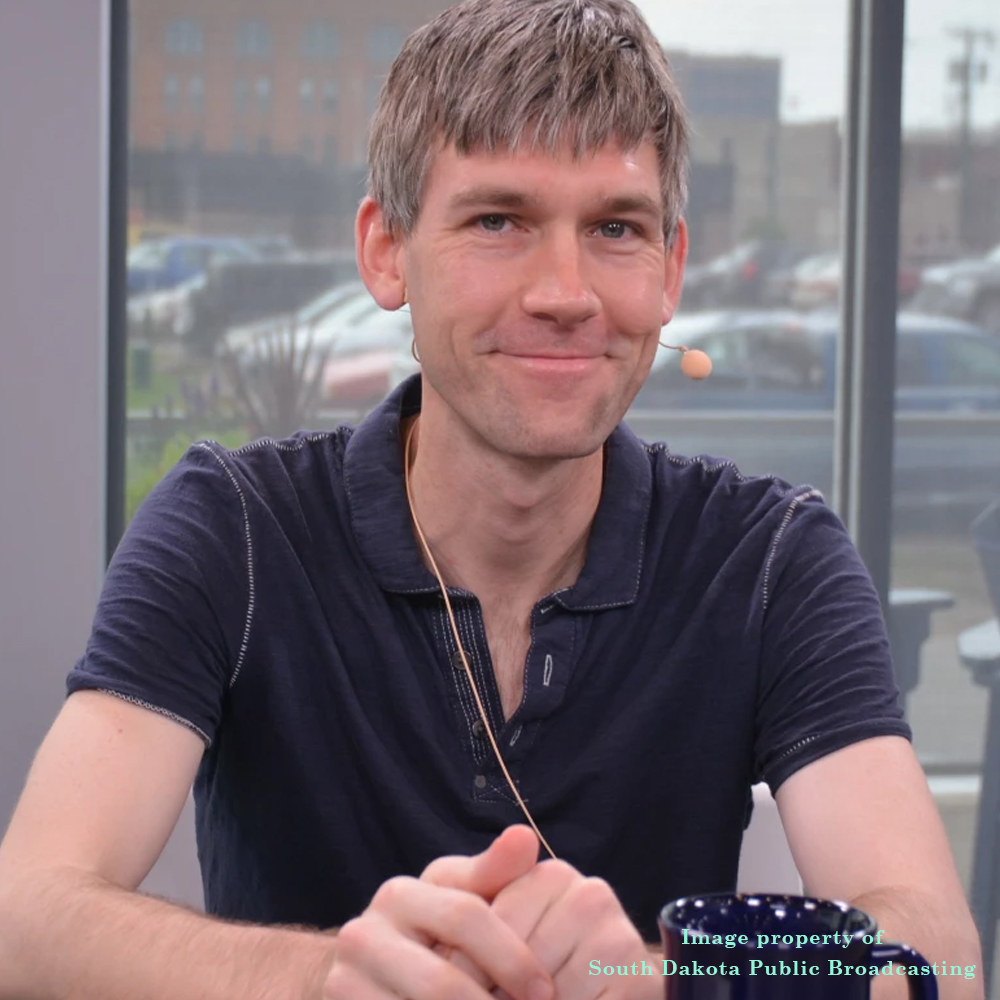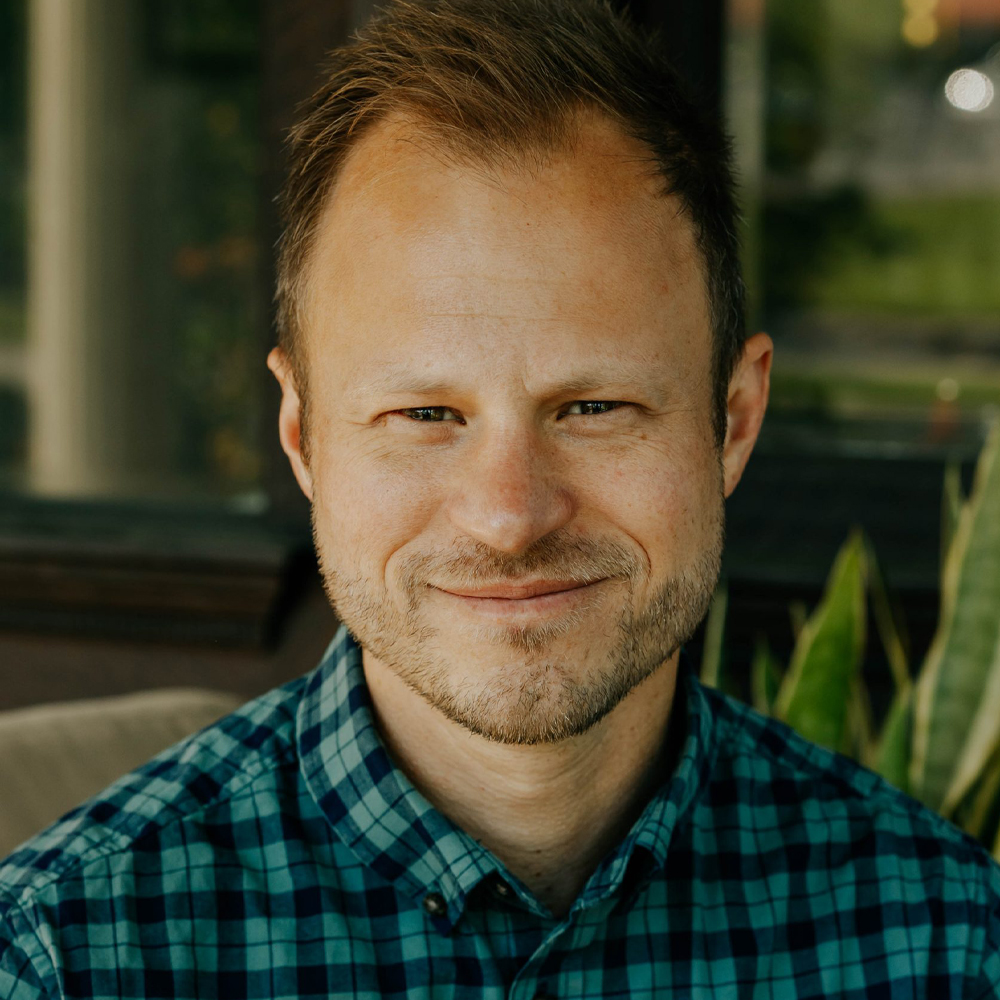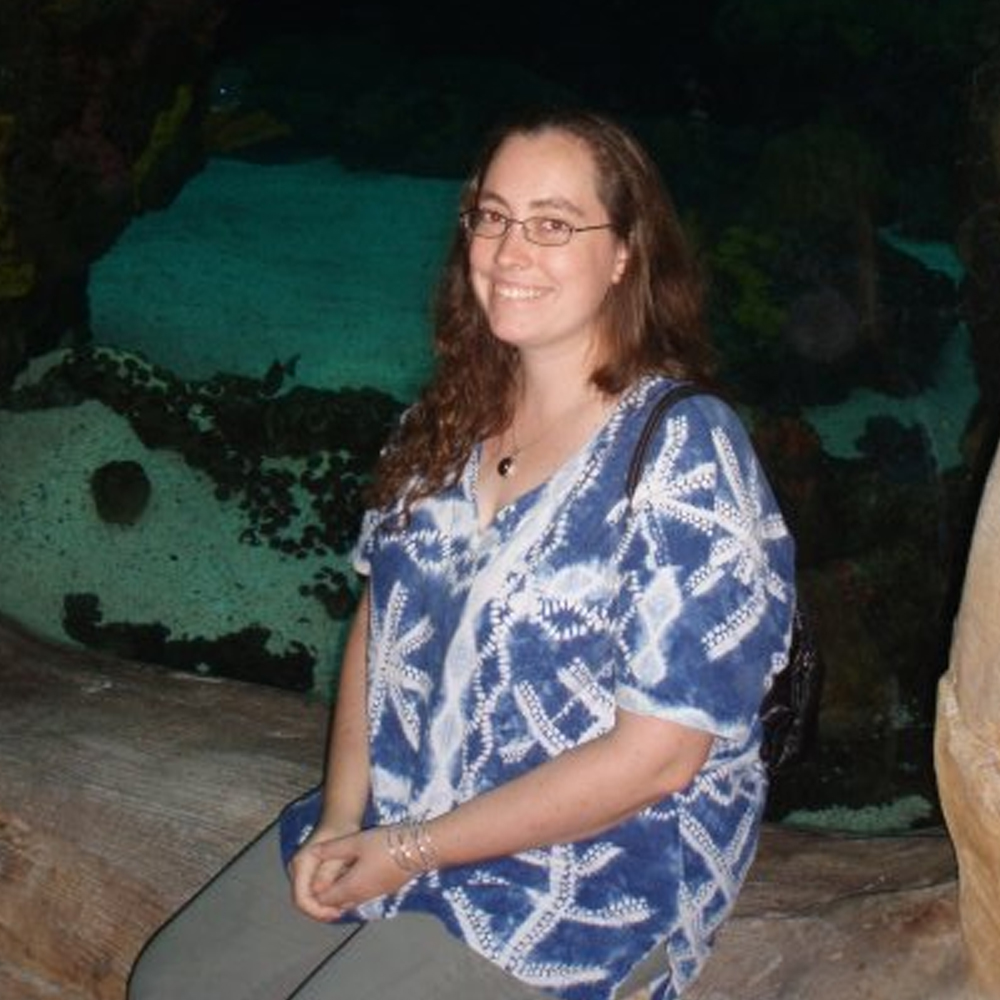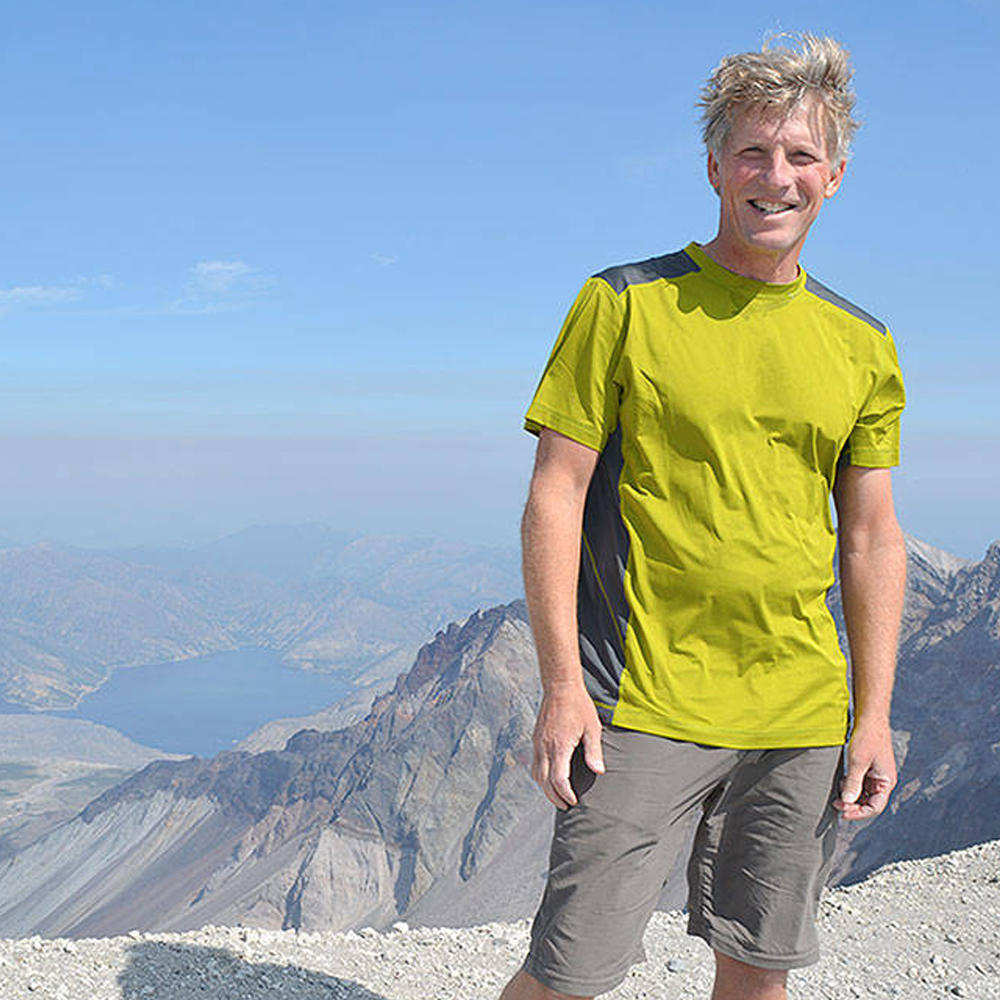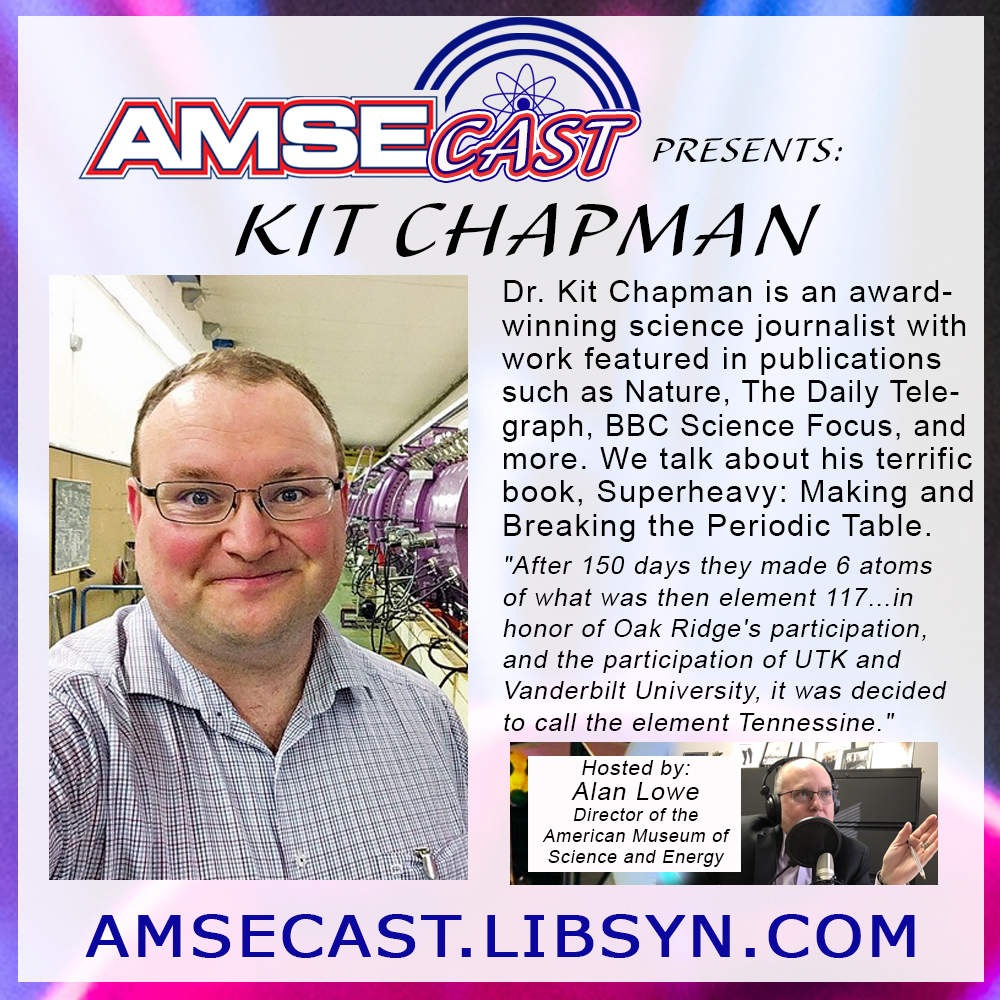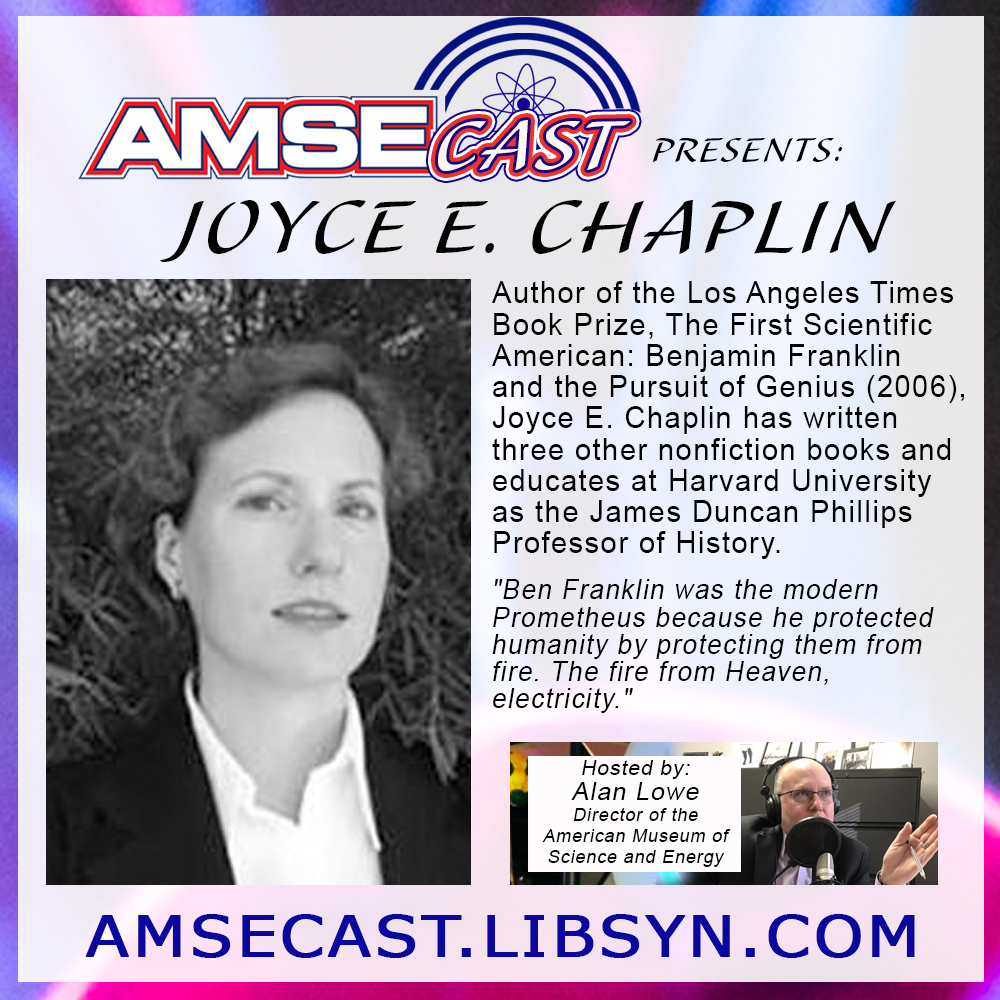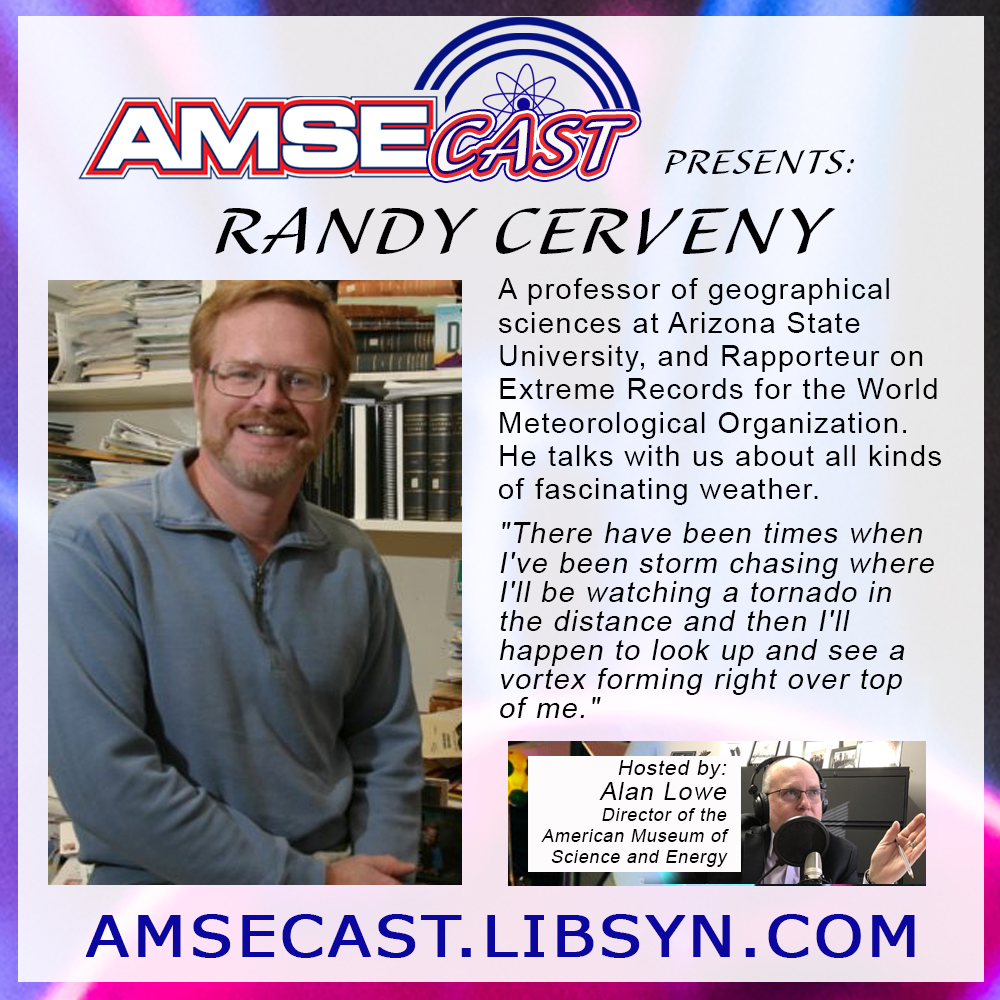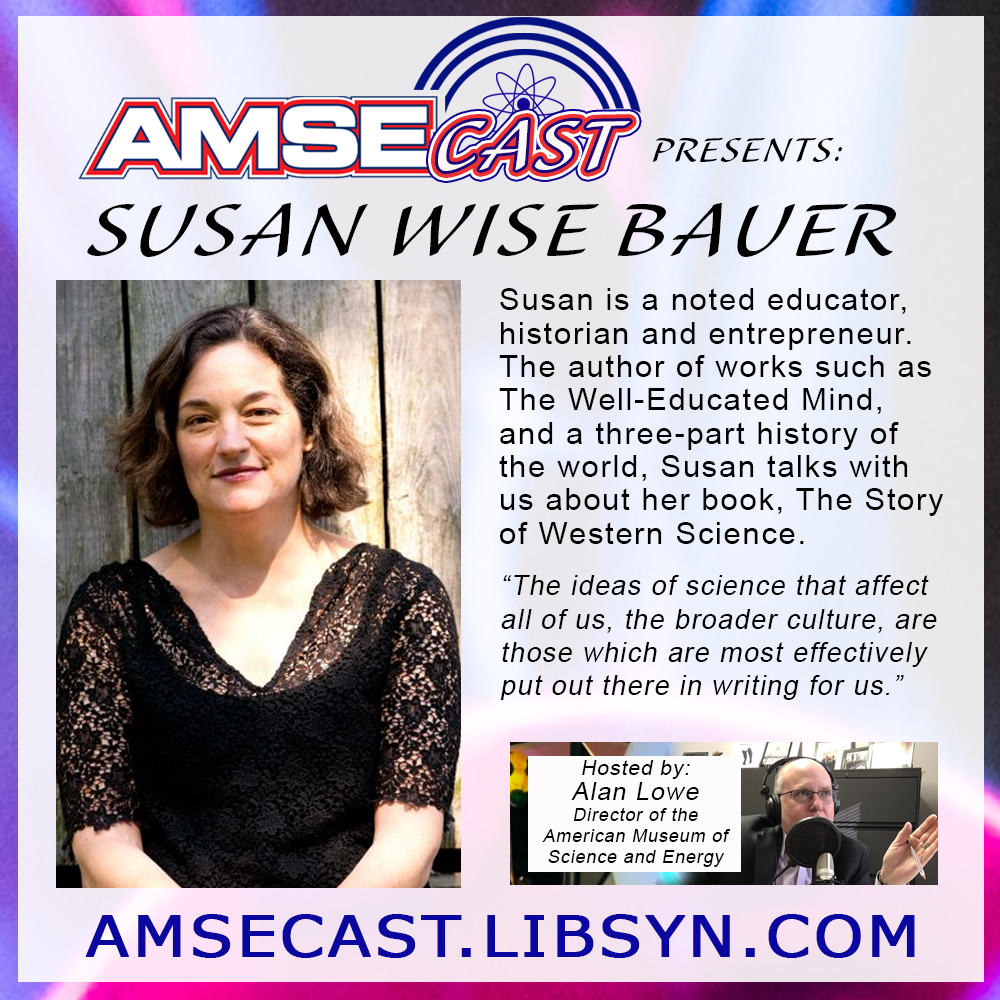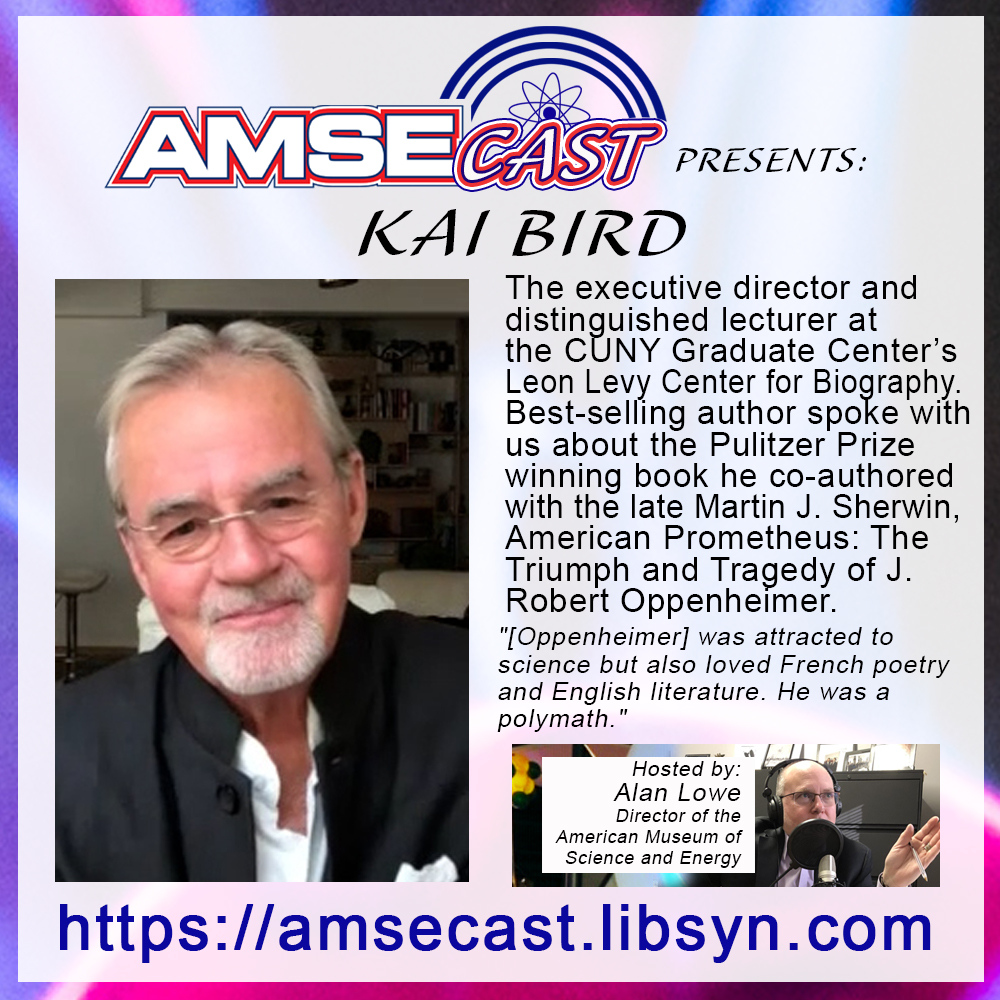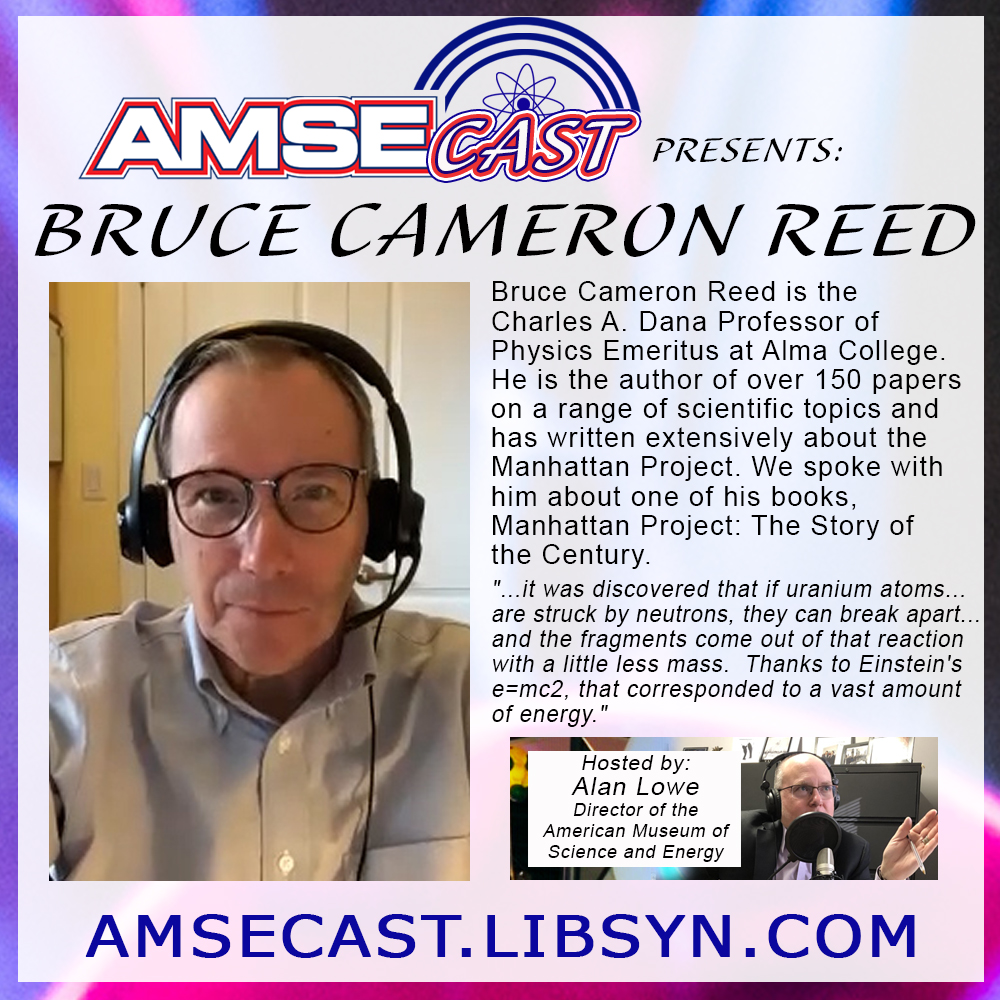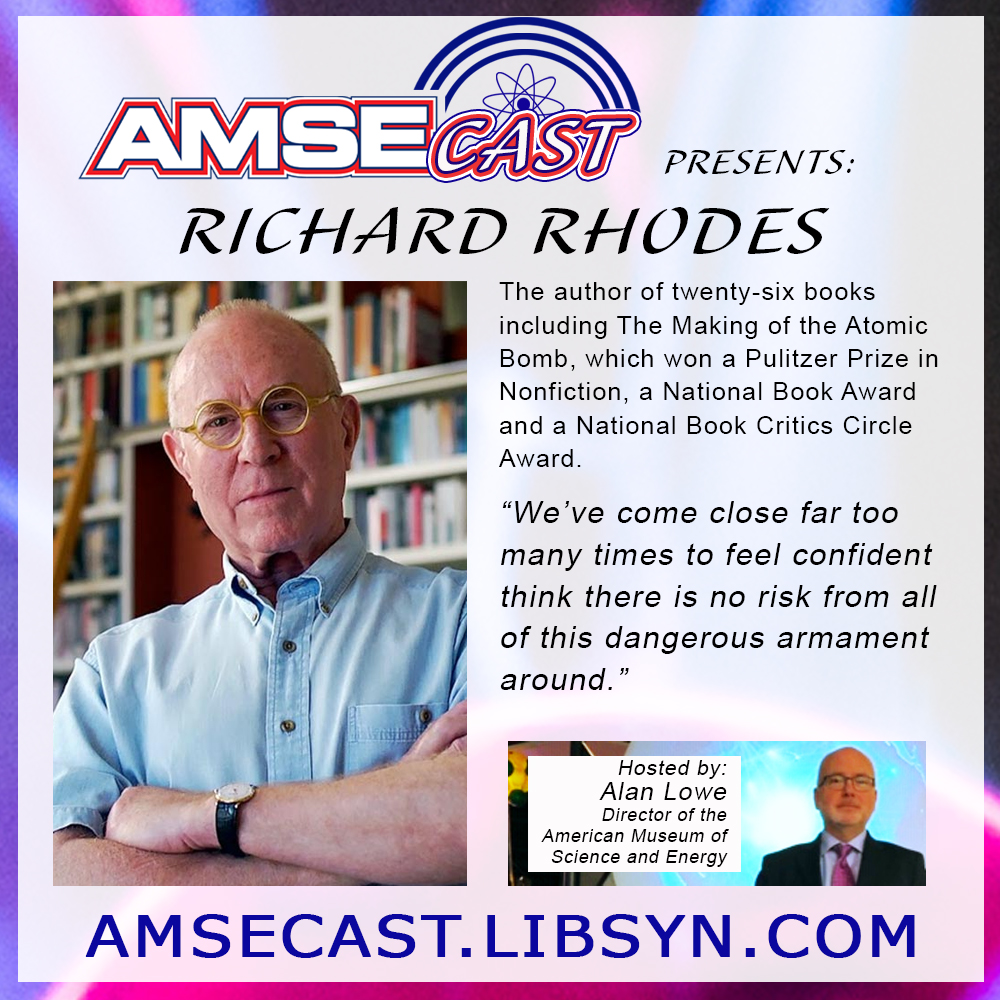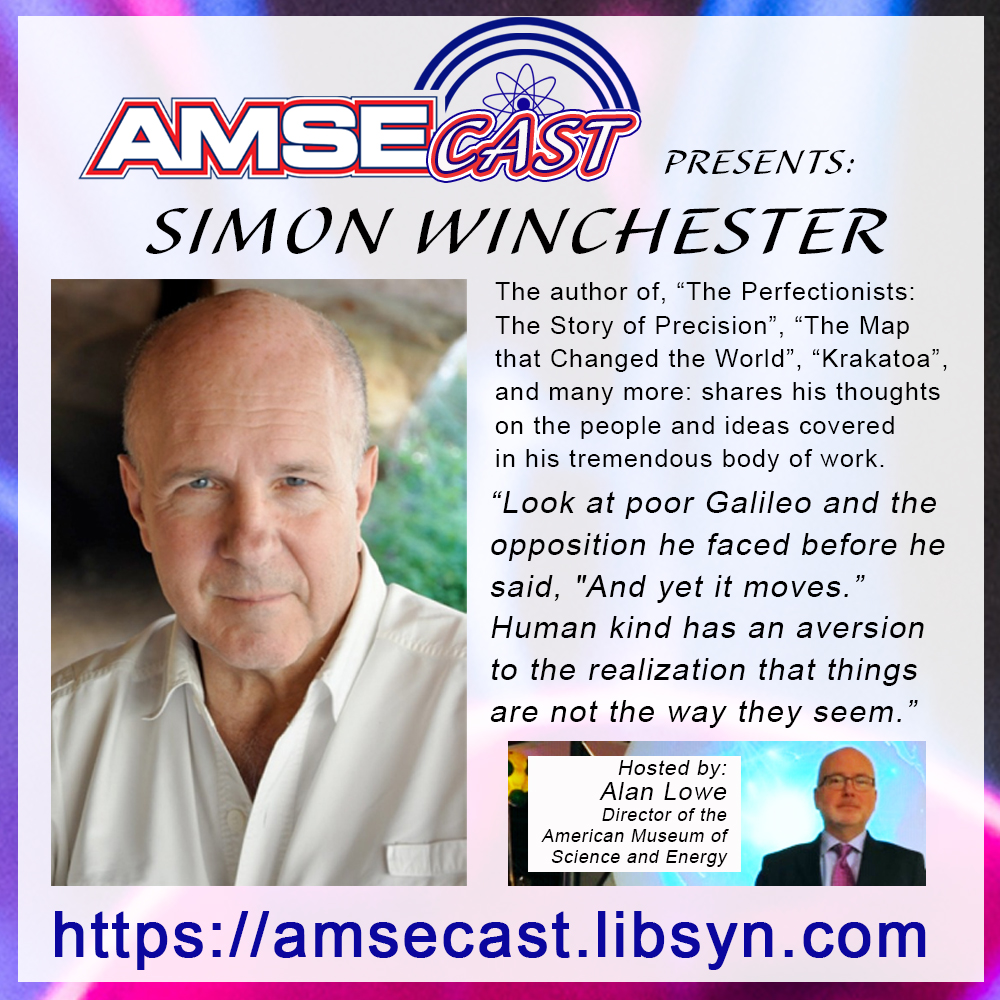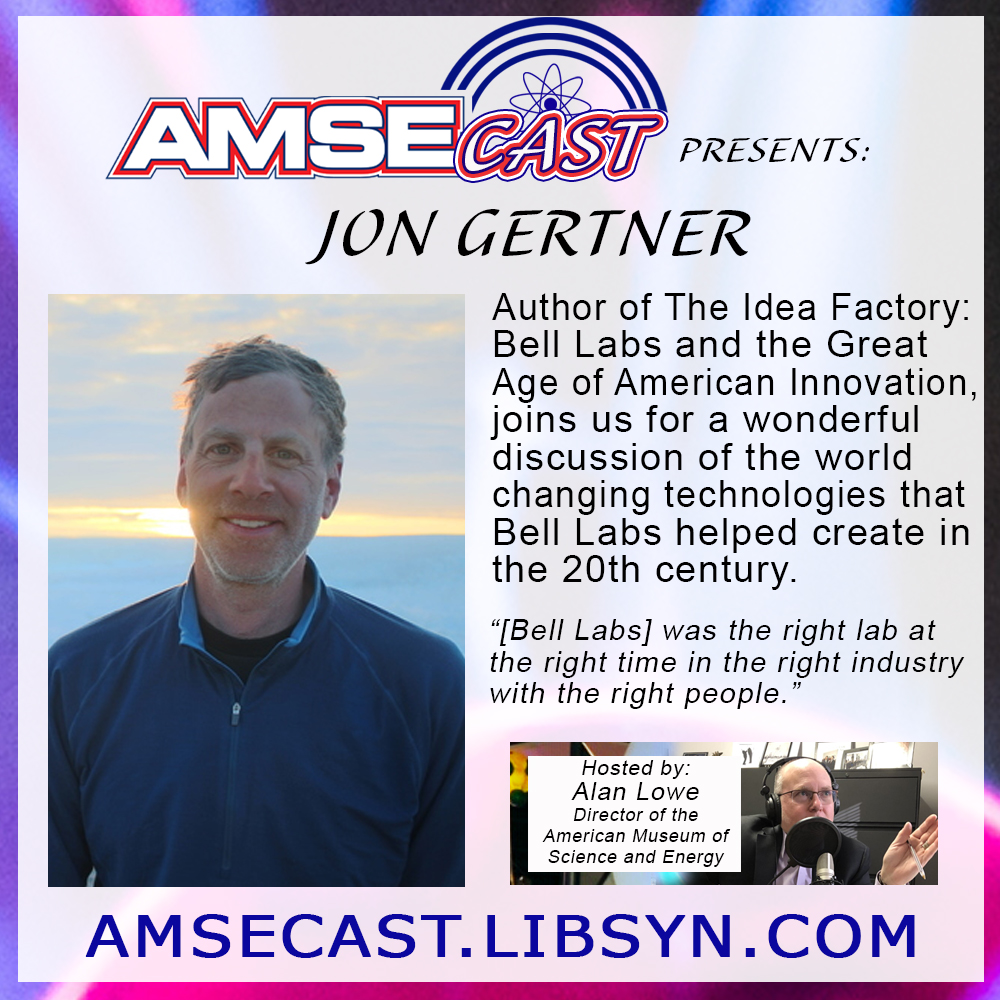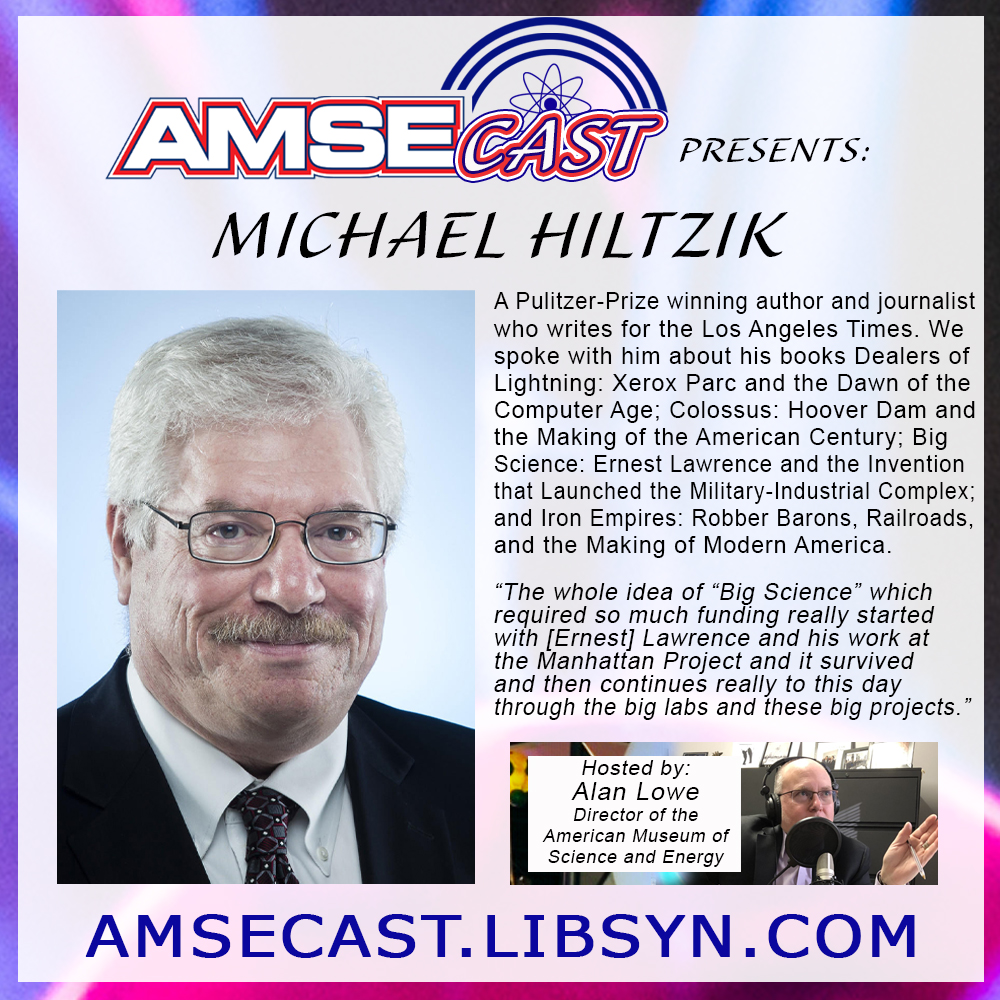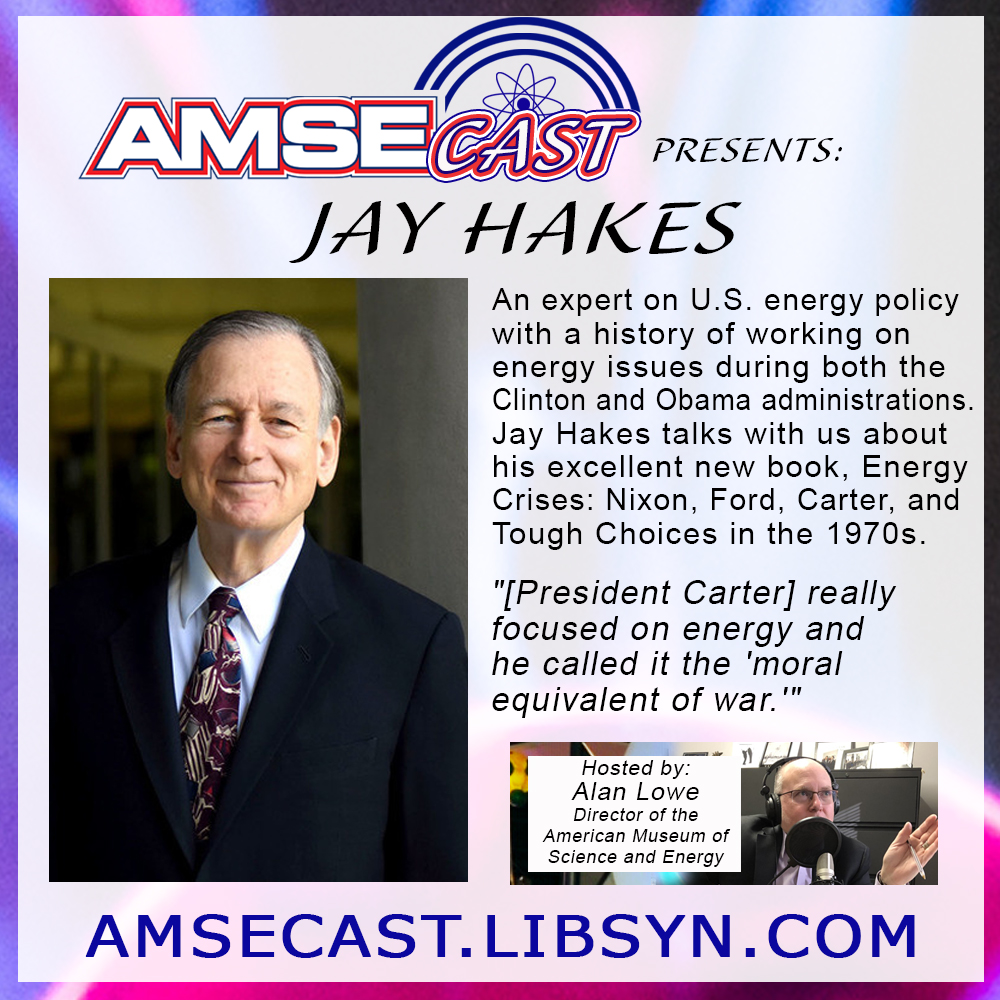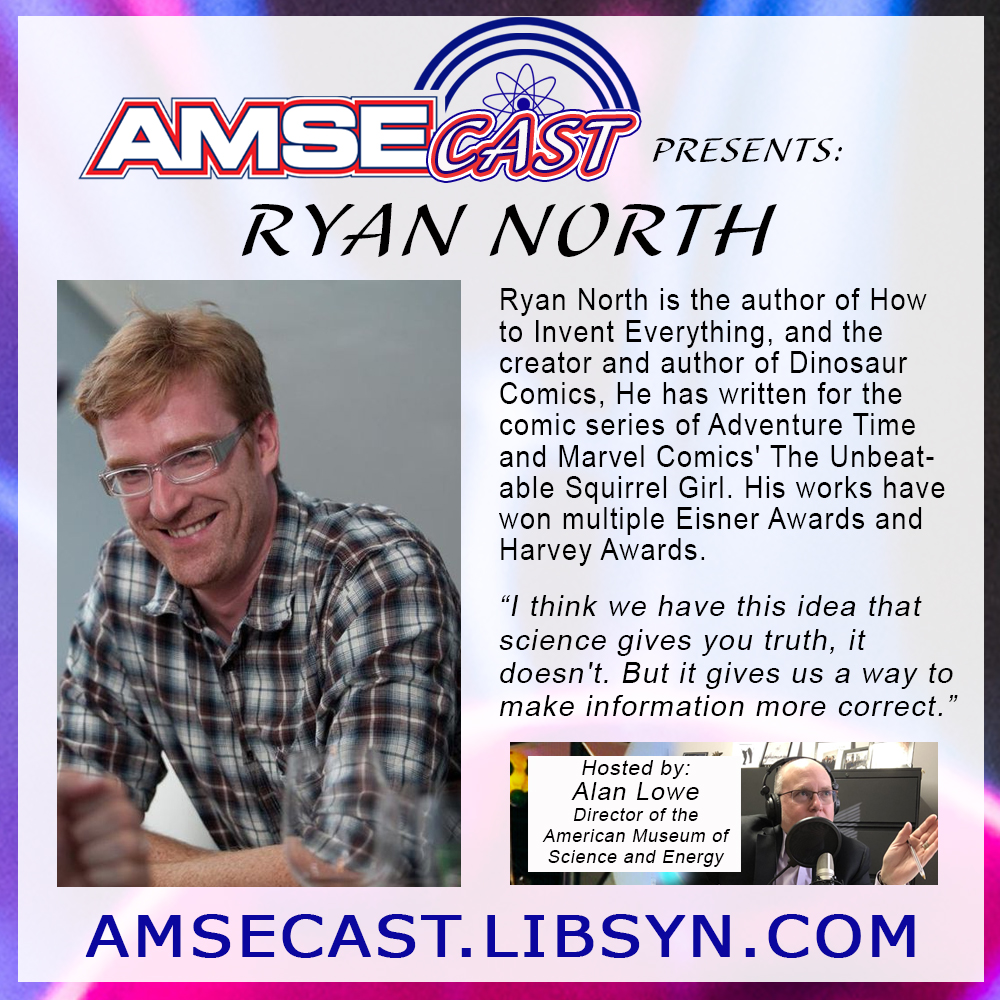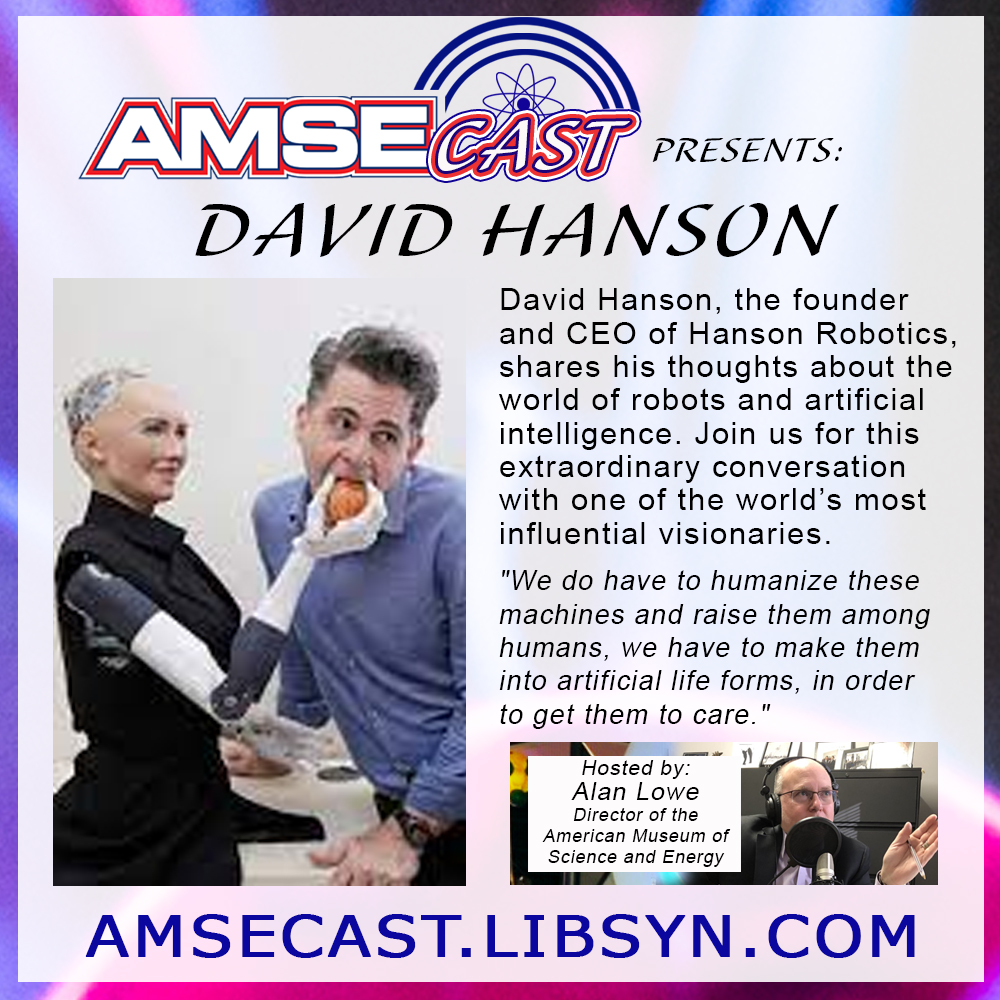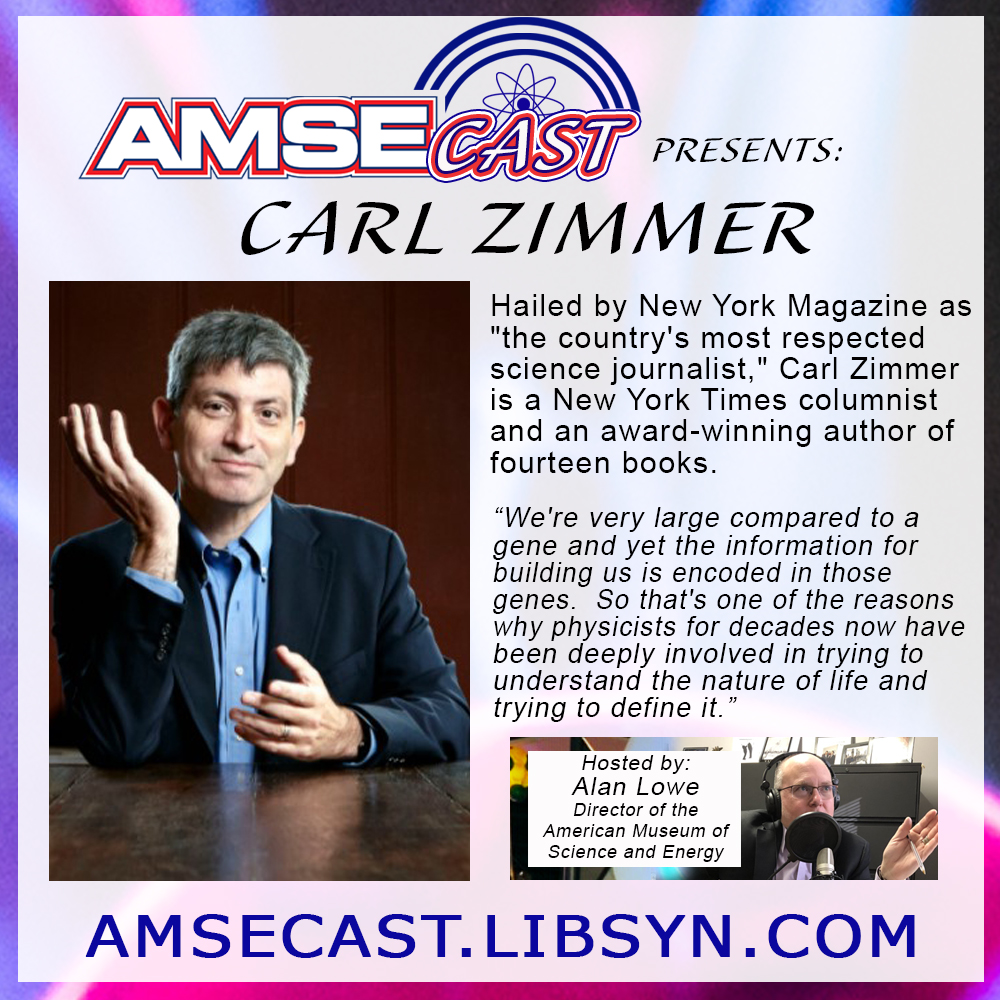The STEM of History (SOH) is a podcast produced by the American Museum of Science and Energy Foundation (AMSEF) in Oak Ridge, Tennessee with funding support from Humanities Tennessee. This series examines the intersection of science with history. It focuses on tracing how scientific inquiry is interpreted in the historical record, and in turn, the impact of historical analysis to informing scientific inquiry.

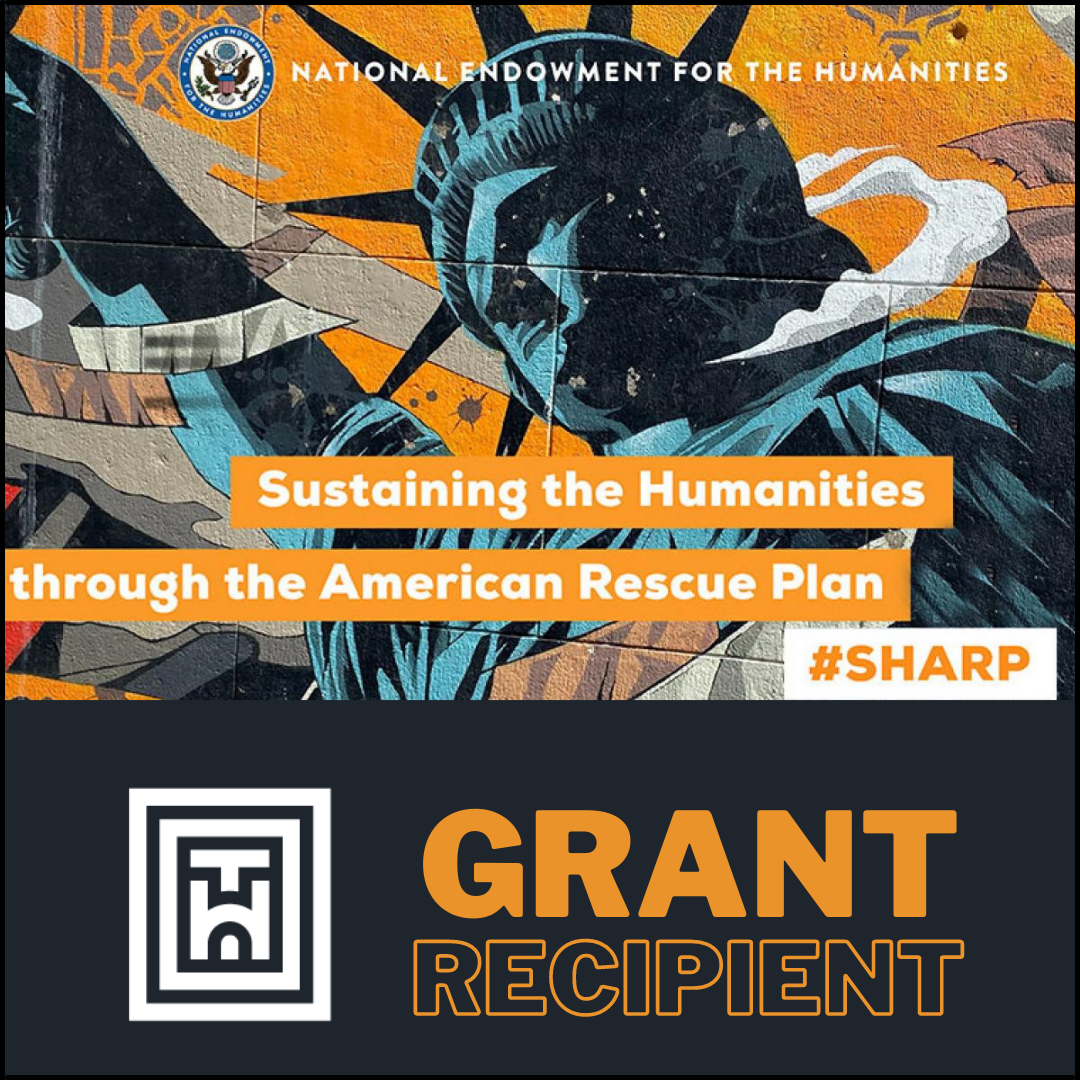
Working on behalf of AMSEF, Alan Lowe is the Executive Director of both the American Museum of Science and Energy (AMSE) and the K-25 History Center. Previously, he was an archivist at the Ronald Reagan Presidential Library and Museum in Simi Valley, California; Director of Operations at the Office of Presidential Libraries in Washington, D.C.; acting
Director of the Franklin Roosevelt Presidential Library and Director in Hyde Park, New York; founding Executive Director of the Howard H. Baker, Jr. Center for Public Policy in Knoxville, Tennessee; the founding Director of the George W. Bush Presidential Library and Museum in Dallas, Texas; and the Director of the Abraham Lincoln Presidential Library and Museum in Springfield, Illinois.
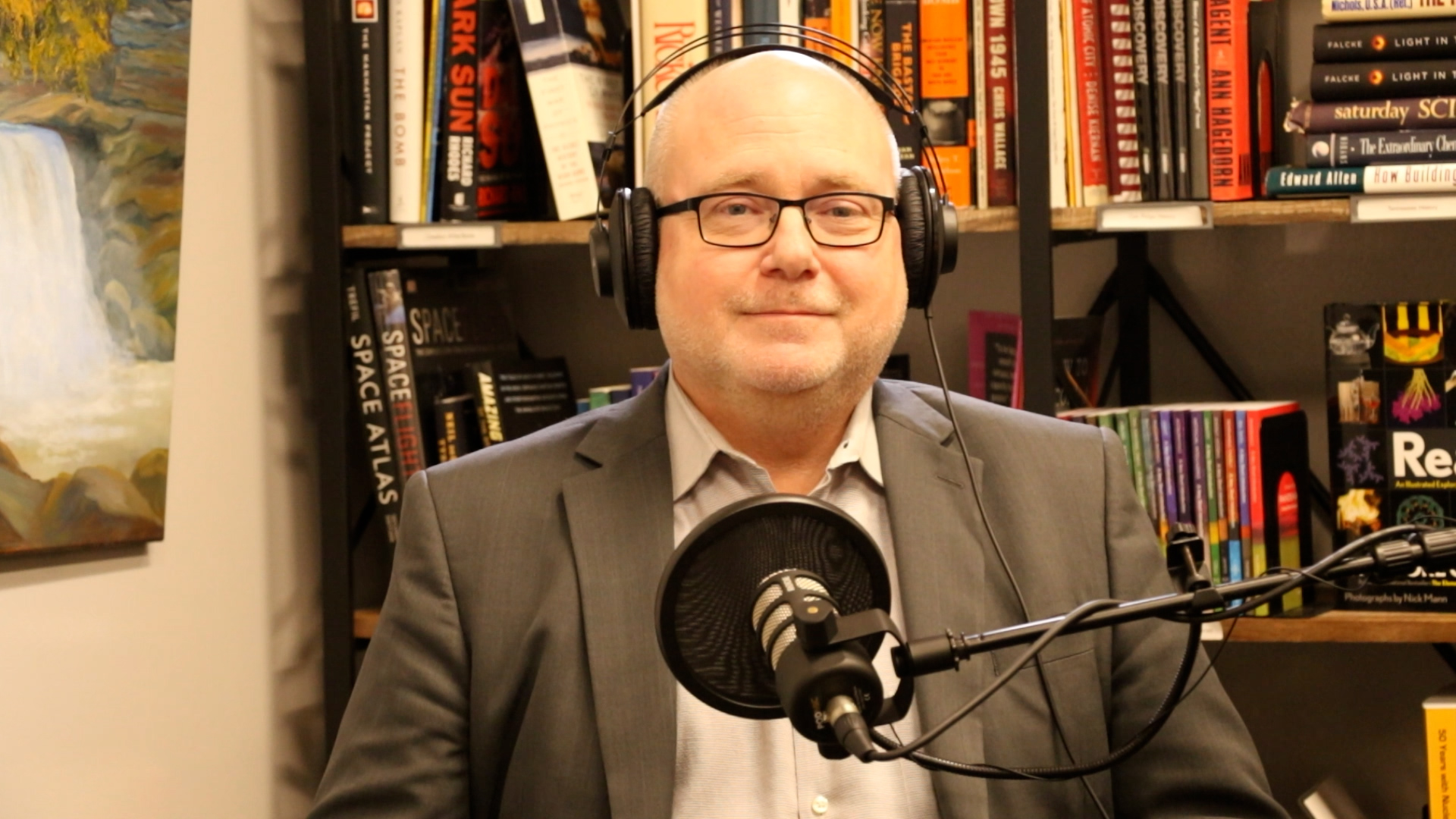
Chandrakant Patel
STEM of History Podcast:
Engineering
Marilyn Johnson
STEM of History Podcast:
Archaeology
Norman (Norm) Ralph Augustine
STEM of History Podcast:
Engineering, Competitiveness and Leadership
Dr. Marianne Wanamaker
STEM of History Podcast
Economics & Public Policy
Dr. Guru Madhavan
STEM of History Podcast:
The Science of Engineering
Dr. Daniel Vivian
STEM of History Podcast:
Historic Preservation
Dr. Ernest Freeberg
STEM of History Podcast:
The Age of Edison
Sam Kean
STEM of History Podcast:
The Periodic Table of the Elements
Tore Olsson
STEM of History Podcast:
Agriculture in Historical Perspective
Dr. Stephanie Drumheller-Horton
STEM of History Podcast:
Vertebrate Paleontology
Steve Olson
STEM of History Podcast:
Mapping Human History, Genes, Race, and our Common Origins
The reason behind the STEM of History:
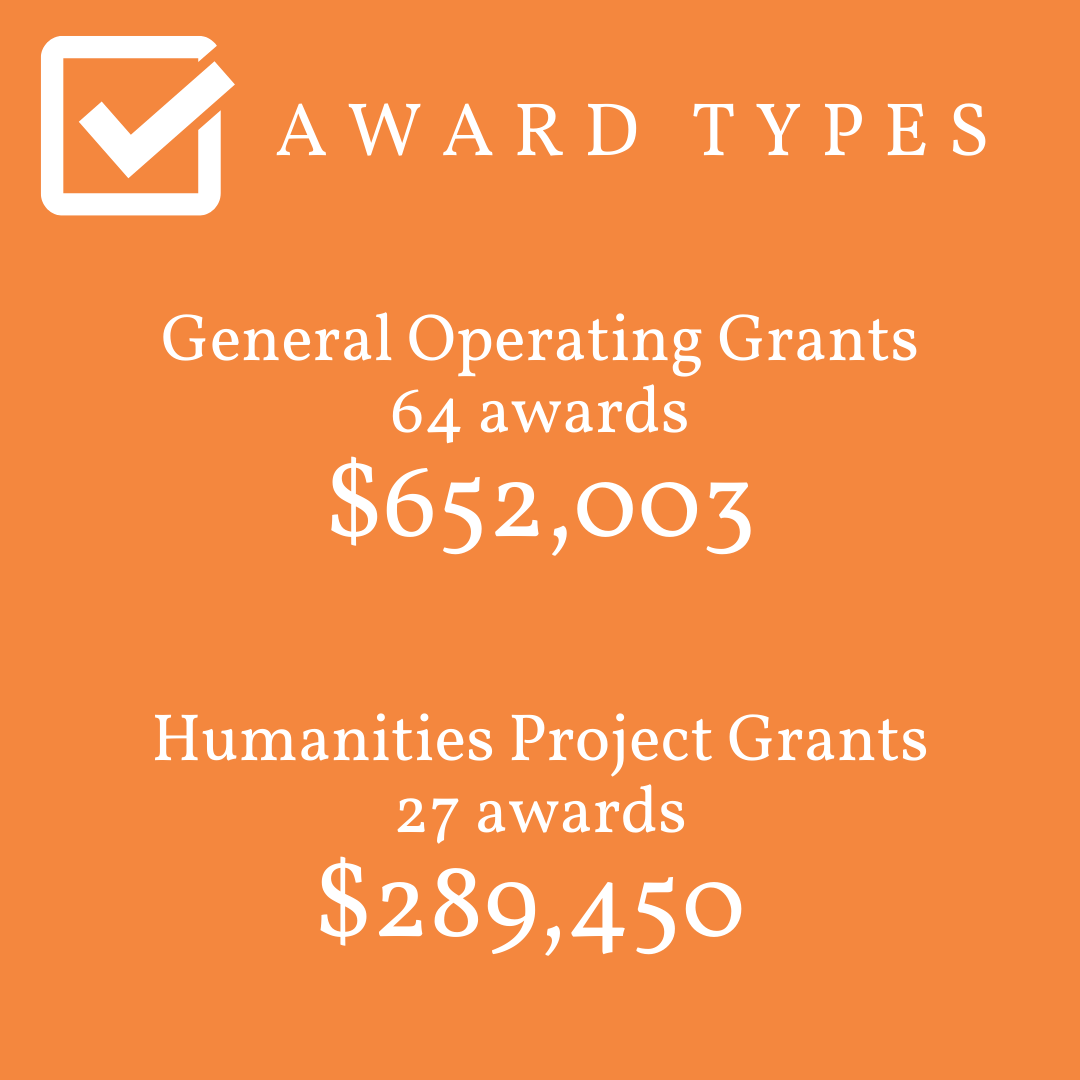
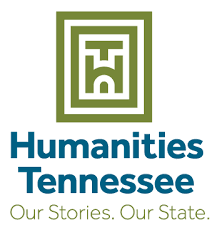
The STEM of History is an online resource that reviews how advances in scientific understanding and technology have (a) enabled us to better research and understand history, (b) provided improved access to historical resources, and/or (c) afforded new or improve provided means to preserve historical resources.

Excellent studies have been made of the history of science, but there is no good compilation showing the uses of science to advance historical understanding. Our belief is that researchers and historians will benefit from gaining a comprehensive view of useful scientific tools and processes. Additionally, teachers will use this resource to help students better understand the elements of undertaking rigorous historical research. At the same time, this resource will give the general public a broader and deeper understanding of history and various disciplines of science. Finally, this resource will help bring together the fields of science and the humanities, advancing interdisciplinary connections and promoting good scholarship. The AMSE Foundation is grateful for the support of Humanities Tennessee for this opportunity to further academic excellence.
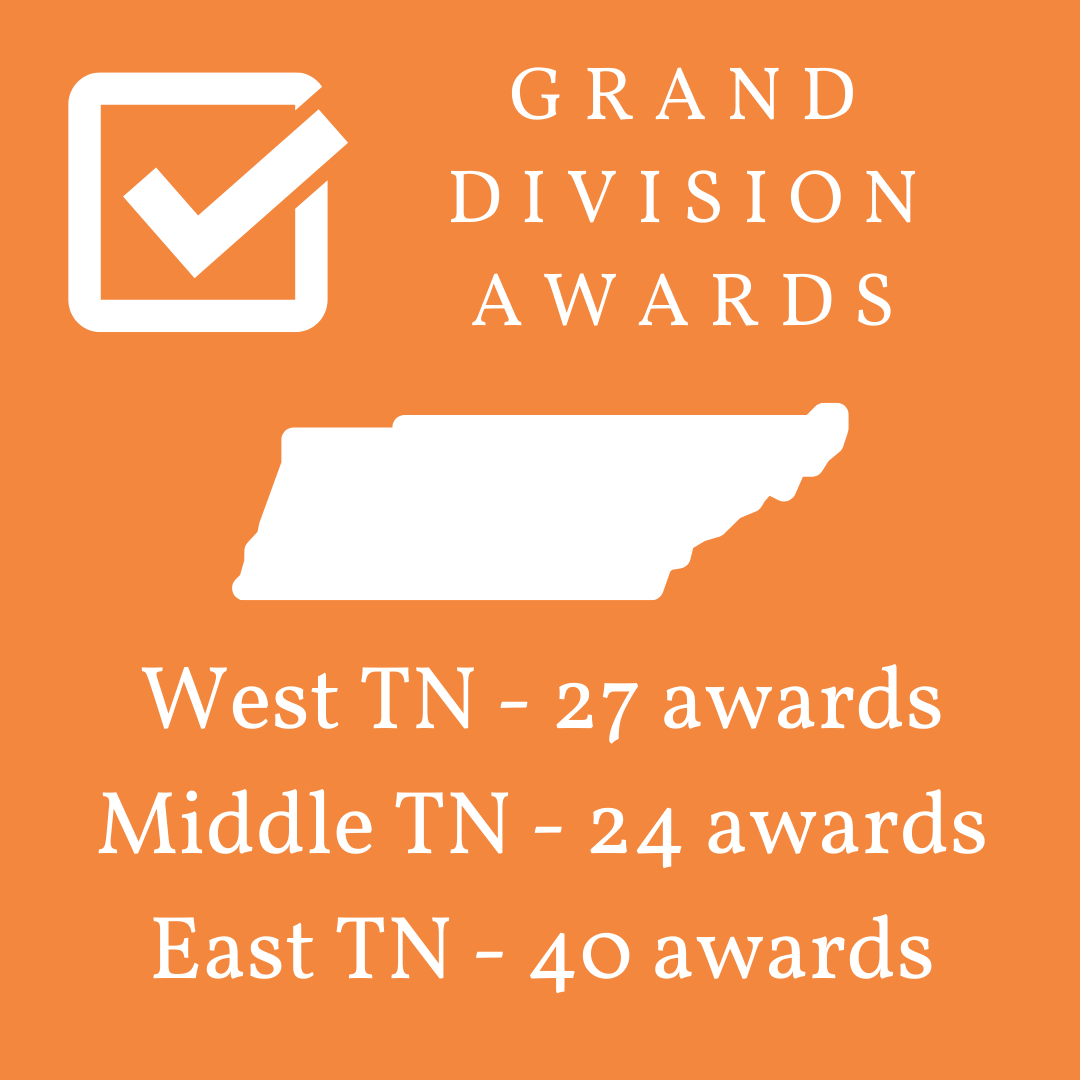
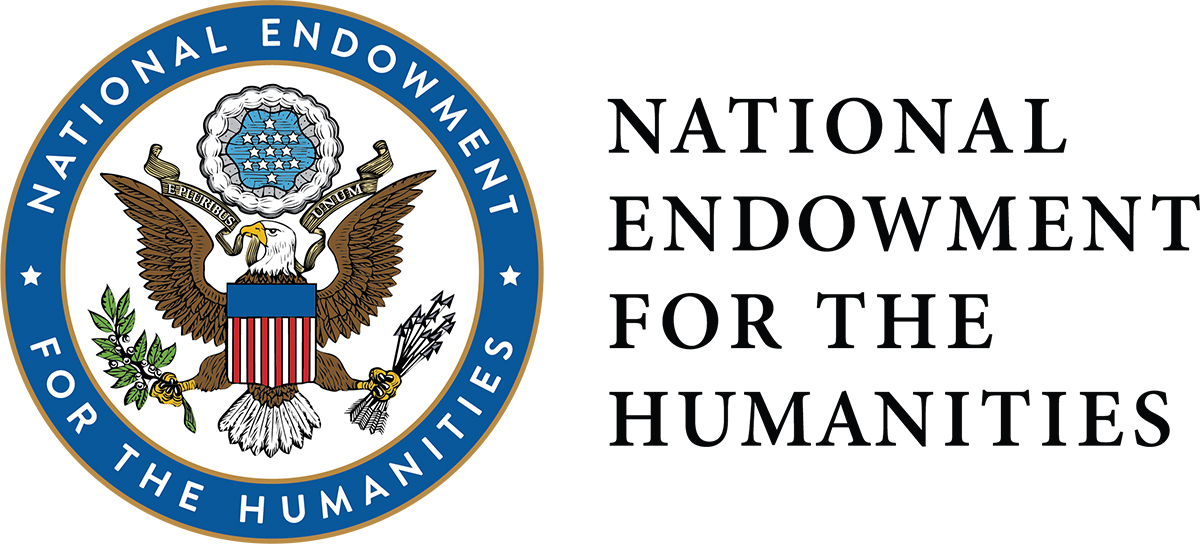
Additional Resources:
Kit Chapman
Kit Chapman’s discussion with us focused on his book, Superheavy: Making and Breaking the Periodic Table, all about the transuranic elements. As Kit showed us, politics plays a role in the creation and naming of new elements. Knowing the science behind the Periodic Table and the creation of new elements informs a study in particular of Cold War politics and history.
Joyce Chaplin
Joyce Chaplin also addressed a historical figure in her book, The First Scientific American: Benjamin Franklin and the Pursuit of Genius. This terrific book shows that understanding one of our most important Founders in the United States means grasping not only his role in the world of science, but the actual science he advanced and that made him a respected international figure.
Randy Cerveny
Randy Cerveny discussed with us his books about weather and climatology, Freaks of the Storm: From Flying Cows to Stealing Thunder: The World’s Strangest True Weather Stories and Weather’s Greatest Mysteries Solved! In our discussion, it became clear that weather has often made or affected our history, and understanding its basic workings makes that history more comprehensible.
Susan Wise Bauer
We discussed with Susan Wise Bauer her book, The Story of Western Science: From the Writings of Aristotle to the Big Bang Theory. In this very engaging book Susan outlines the most influential works about science from Hippocrates to today. She shows that the unfolding of history and the development of science have gone hand in hand. By reading the primary sources – for example, by going referencing the writings of Aristotle, or by reading Darwin – we gain a better understanding of their scientific ideas, and, in so doing, of the importance of their place in our history.
Kai Bird, Cameron Reed, and Richard Rhodes…
…talked with us about their books related to the Manhattan Project. Blending lessons in atomic physics with the story of the physicists, engineers and others who made the Bomb possible, Kai, Cameron and Richard created award-winning books detailing the Manhattan Project and its impact on our world. (Books discussed included Kai Bird’s American Prometheus: The Triumph and Tragedy of J. Robert Oppenheimer; Cameron Reed’s Manhattan Project: The Story of the Century; and Richard Rhodes’ The Making of the Atomic Bomb.)
Simon Winchester
Simon Winchester is an award-winning science writer, and we were fortunate to speak with him on AMSEcast about several of his books. Relating to the STEM of History, though Simon blends a knowledge of science with history in all his books, we would especially direct you to our conversation with him about his books The Perfectionists: How Precision Engineers Created the Modern World, Krakatoa: The Day the World Exploded, and The Map that Changed the World: William Smith and the Birth of Modern Geology.
Jon Gertner and Michael Hiltzik
Jon Gertner and Michael Hiltzik spoke with us on their episodes about the role of creativity in science and the massive effects that has had on our recent history. With Jon, we had a fascinating conversation about his book The Idea Factory: Bell Labs and the Great Age of American Innovation. Among his other books, in our conversation with Michael we discussed his work Dealers of Lightning: Xerox PARC and the Dawn of the Computer Age. Illustrating the advances in science and engineering made by both Xerox and Bell Labs, Jon and Michael not only help chart the history of the 20th century but show the fundamentals of the science behind that history. How cell phones work, why transistors were revolutionary, and how communications satellites have changed our world are just some of the topics discussed in both historical and scientific narratives.
Jay Hakes
Our conversation with Jay Hakes centered on his book, Energy Crises: Nixon, Ford, Carter and Hard Choices in the 1970’s. Taking a close look at those three pivotal administrations, Jay charts the fascinating development of energy policy in the United States and the science behind policy decisions. Understanding the basics of the science brings those policies into a clearer view.
Ryan North
Ryan North joined us on AMSEcast to talk about his book, How to Invent Everything: A Survival Guide for the Stranded Time Traveler. Presented in a fun, very accessible way, Ryan takes the reader through the basics of rebuilding a civilization. In so doing, he sneaks in a great deal of science while addressing societal needs like creating energy, or growing crops. This book is an excellent primer on what makes our civilization tick and the science and engineering behind it, and a wonderful conversation starter about how in our history these advances were made. Again, knowing the basic science lets Ryan recreate civilization. For us, that knowledge helps us understand the world around us, and what came before us, better.
David Hanson
Our conversation with David Hanson, Founder and CEO of Hanson Robotics, was utterly fascinating. David is at the forefront of his field, a field that is making history as we speak. In the future, as we write histories of the growing impact of robotics and artificial intelligence on our societies, and as we struggle with the issues raised by David like the rights of robots, knowing how androids work, the science and engineering that go into creating and sustaining them, will be vitally important.
Carl Zimmer
Carl Zimmer spoke with us on AMSEcast about his books Life’s Edge: The Search for What It Means to Be Alive and A Planet of Viruses. Both are terrific books, but we would direct you especially to the conversation about A Planet of Viruses in the context of the STEM of History. As is apparent from our lives during the COVID-19 pandemic, understanding the nature of viruses is critical to telling our history accurately and completely.
